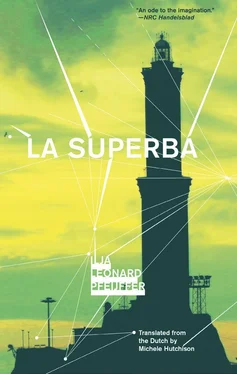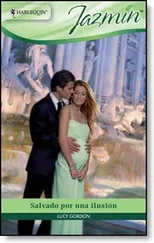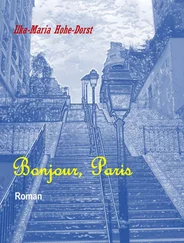And he was several people, too. He was the rumpled, soiled old age pensioner in the morning with a gin and tonic in his shaking hand. He was Oscar Wilde in the afternoon, a ravishing conversationalist who, while enjoying a gin and tonic, sailed along on the currents of art and literature, sublimely acting out what pleased and rankled him, quoting Shakespeare and his own verse, dishing up priceless anecdotes. He was the Don the Italians loved after sunset, the pissed clown who sang and danced with a glass of gin and tonic in his hand, without a care for decorum or even any recollection of what the word meant. There was no way he could remember the names or faces of the dozens of friends, male and female, who filed past his table after sunset whom he’d undoubtedly met before at some point, but also after sunset. This was why he hugged and kissed everybody. He resolved painful misunderstandings, which were inevitable, by bursting into song. He had a large repertoire, but his favorite was “We all live in a yellow submarine.” He was the Don who tripped and injured himself after closing time. This was because he suffered from dizzy spells, according to his own diagnosis. He actually went to the doctor once to ask what was causing the dizziness. “And what did the doctor say?” I asked when he returned. “He’s an old friend of mine. I can’t lie to him. He asked me how much I drink and when was the last time I’d eaten. I’m a very intelligent man but not that clever.”
He was seventy-two when I met him for the first time. He told me he’d come to Genoa more than twenty years earlier to teach English. He had a one-year contract. He never left, not even once he retired. He had lived in the hotel on Salita Pollaiuoli for more than twenty years, close to the Bar of Mirrors. He had four girlfriends who were venomously jealous of each other. He had more than four girlfriends. He kissed, felt up, embraced, and pawed everything with a pair of tits, and then he’d say, “I love you.” And all that about a hundred times a night. “Shot by a jealous husband at the age of ninety-five. That’s my ambition. What a way to go.” His greatest mistress was undoubtedly his glass of gin and tonic. He often said it himself, “I’ve abandoned nine women, but never a glass of gin and tonic.” Cappuccino senza schiuma , he called it lovingly. He never emptied his glass, but cherished, adored, and nurtured it the whole day long. Each time he was halfway, he’d ask for extra ice and a lacrima —a tear, a shot of extra gin. “Drunk on tears. That would be a wonderful name for a pop group.” Early in the afternoon, it was already pure gin with a dash of the memory of tonic. “Enough gin to keep the Titanic afloat and enough ice to sink her.” He was a professional alcoholic who didn’t spend a single second of the day with an empty glass. And at night, at closing time, there wasn’t a barman who knew how much gin and tonic to put on the bill. All things considered, he’d only drunk the one.
“I had my first gin and tonic when I was eleven, with my Uncle George. It was all his fault. He was a great character. The man never uttered a word of sense in his life, until he suddenly came out with: ‘They say you live longer if you don’t smoke or drink. But that’s not true. It just seems longer.’”
He didn’t like moving around, that much was clear. He liked Genoa. “My hotel room looks out onto seven bars. Eight if you count the Internet café. Please stay. Please stay in Genoa, Ilja. It’s heaven. Everything you need is here.”
3.
Apart from gin and tonic, Don only needed one other thing to survive and that was attention. He was the king of the Piazza delle Erbe, where all the tables were crooked. He would install himself, by preference, on the high side of one of the higher tables, because sooner or later a bottle of tonic would topple over and in accordance with the rules of gravity, would land not in his lap, but in the lap of whoever was sitting opposite him on the lower side of the table. He was a professional. He thought of everything. When it came to drink, he didn’t leave anything to chance.
Usually he sat on his own on the high side of his high table and held court. The crowds greeted him and moved on. The two most common words in Genoa were “Ciao, Don.” He sat there like a retired cabaret artist waiting for an audience. Like a sleeping monkey in an old-fashioned machine, the kind you had to put a coin into to wake it up and then it would do a little song and dance. Don was like that, prepared at any moment of the evening to do his act as soon as a grateful audience presented itself. In the meantime, he’d doze off behind his sunglasses with a half-liter of gin and tonic in front of him on his high table.
And like every cabaret artist, he was in constant need of new spectators. His repertoire was large, but sooner or later he’d lapse into repetition. The gin and tonic didn’t help, either. He was capable of dishing up the same priceless anecdote three nights in a row because for two evenings in a row he’d forgotten he’d told it the night before. Though this wasn’t a real problem, because the combination of his antiquarian Oxbridge accent and the gin and tonic made him as good as incomprehensible, so you had to hear the same anecdote at least three times to understand it.
His favorite audience members were the boaties . Ah, the boaties. How should I describe them? Genoa is a port city, right? The cruise ships moor to the west of the Centro Storico; further to the west are the ferries for Sicilia, Sardinia, and Africa, and even further to the west from there, kilometers and kilometers of container ship facilities. But all the same, we’re talking about the Mediterranean. So there’s also a large harbor for yachts. And that’s in Porto Antico, right beneath the Centro Storico, at walking distance from the Piazza delle Erbe. That’s where you find the luxury motor yachts, the over-forty-meter crew. If the owner isn’t there. If he is, they go to Sardinia, Portofino, Saint Tropez, Saint Tropez, and Saint Tropez. But the owner is only there two or three weeks a year. Aside from that, they also have a few charters, but for the rest of the year the boat stays here. And to maintain a luxury motor yacht of more than forty meters moored in the haven, you need a crew of ten or eleven. There’s a German or a Russian captain everyone hates; half are Filipinos, who do the hard work and cook for each other; and the other half come from the Commonwealth. They’re the boaties. Australians, Kiwis, and Canadians with much too much money and far too many gadgets, off on an adventure in the Mediterranean, only it’s not a real adventure because they hang out together all the time in overpaid luxury. They come along to the piazza from time to time with their iPhones to noisily throw away hundreds of euros on cocktails and leave a stupidly large tip for all the glasses they’ve broken and all the nuisance they’ve caused.
They were Don’s most appreciative audience. It also meant he didn’t have to speak Italian, which he couldn’t anyway. Spoiled young men from the colonies found his archaic Oxbridge accent hilarious. Sometimes it seemed as though they expressly sought him out. As though he had been explicitly marked out as a tourist attraction in their travel guides. With three stars. And up he’d pop. As though someone had put a coin in the machine. He’d do all his anecdotes and all his jokes. He satisfied every expectation. And they would buy his next gin and tonic just like you’d throw a new coin into the monkey automat. And at the end of the evening, when he could no longer talk, he’d begin to sing. They already knew the song. “We all live in a yellow submarine…”
4.
He considered me a new member of the audience, too. He told me stories about his own life. He was a brilliant storyteller. At least, after his third gin and tonic and before his thirteenth, which on average left a window of opportunity of between three and six hours. He told me how he had been expelled from school almost a century ago. Of course with a surname like Perrygrove Sinclair and a father who’d ascended to great heights in Her Majesty’s Royal Army, he’d been sent to one of the most prestigious public schools in the United Kingdom.
Читать дальше












